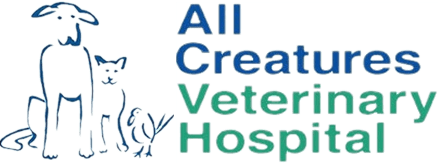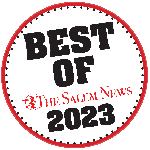Bird Health and Care
Hookbill Diet
Your pet bird’s diet should be as varied as possible. A pinch of multivitamin including minerals such as iodine, magnesium, copper, and iron should be sprinkled on food daily. Nekton S, Prime and Super Preen are excellent vitamins. Your bird’s diet should include food from the major food groups that we eat, pelleted diets such as LaFebers or Harrison’s bird diet and a seed mix that contains very few sunflower seeds. You may be able to convert your bird onto a pellet diet by feeding LaFebers Avicakes first. LaFeber’s Avicakes are treats with pellets included. Then mix in LaFeber’s pellets or other good pellet mixes with the seeds and human food. A good guideline is ½ human food and ½ pellet. Small birds should only get about 2 teaspoons of seed per day, and larger birds should get no more than ¼ cup per day.
Feed your bird one or two of the suggested foods in each food group daily. If your bird won’t eat them at first, don’t get discouraged! Sometimes sharing a new food with your bird will make him or her more willing to try it.
Protein
Protein is important for growing birds as well as those that are molting or breeding. Good sources of protein include cooked eggs, almonds, peanuts, boiled white or brown rice, cooked or canned beans (kidney, chickpea, and lentils), and cooked chicken.
Carbohydrates
Carbohydrates provide many of the B vitamins and minerals that are necessary for a good bird diet. Carbohydrates are found in pasta, bread, Cheerios, oats, boiled rice, cooked corn-on-the-cob, and potatoes.
Vegetables
Vegetables that are dark orange, yellow and red provide vitamin A, while dark green vegetables provide calcium are great for your bird’s health. Good sources of these vitamins include carrots, carrot tops, beets, beet greens, swiss chard, broccoli, green and red bell peppers, cooked squash (summer, butternut or acorn), parsley, thyme, cilantro, spinach, dandelion greens (sold at grocery store – there may be pesticides on outdoor harvested greens), watercress, and chicory. Frozen mixed vegetables may also be used.
Fruits
Fruits provide vitamin C among many others and all types of fruit may be fed. Remember to remove the pits from cherries. Do not feed your bird avocado, eggplant, mushrooms or chocolate, as these are toxic to your bird. It is important to always provide fresh water daily; if you wouldn’t drink it, neither should your bird! In addition to providing proper care and nutrition, a physical exam every six months including annual blood work, a fecal gram stain, and an avian polyomavirus vaccine is the best way to keep your companion bird healthy.
Visit the following websites for more information:
Some great articles to check out are:
- Caging the Companion Parrot
- Feeding Your Bird a Healthy Diet
- Converting Your Bird to a Healthy Diet
- Unsafe Food for Birds
- Signs of Illness in Your Pet Bird
View this video on getting your bird used to a towel with play. This makes it easier to towel your bird for grooming and physical exams.
Call All Creatures Veterinary Hospital, providing bird health care to the Salem and the North Shore areas of Massachusetts, today, or request an appointment online.







